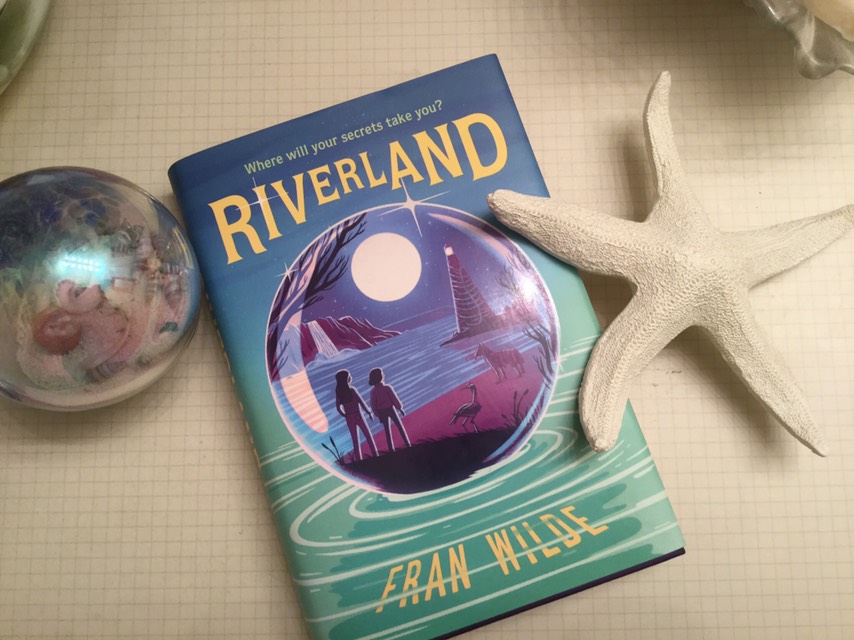Riverland

I didn't have a sister to share the horror with, but I did have a Riverland, made of books, and dolls, and music, where nothing could hurt me, because even in stories, when something went wrong, there was the hope and opportunity of fixing the thing.
(That may explain why I became a writer.)
Fran Wilde's Riverland was a hard book to read, but at the same time, I could not put it down, read it in a week. I needed to know that Eleanor and Mike would be okay. And of course, they are. That's not a spoiler, because you don't yet know the hows of Riverland, how the sisters come to the river, who they find there, and what they discover in themselves.
I was six and seven, a little older than Mike in this book. I had step-brothers who did not live in the same house. I had a stepfather who was angry all the time. I had a mother who knew how to magic things into wholeness once more until they were broken again. I had a clumsy mutt of a dog who I loved more than anything, because perhaps they were more clumsy and broken than even me, and beside them I could be invisible.
We packed the car when we left. We left because he'd finally hit her one too many times. Because I'd finally seen it happen. If I close my eyes, I can still see it. I have a distinct memory of that drive -- I wasn't scared, because at last things would be better, and I imagined I saw great bison roaming slowly across the dark plains as we drove west. As we came home.
You know home when you get there. Eleanor and Mike know, too. Sometimes home isn't a building, but a place, a place where you have the time and space to figure yourself out. How you work, and how you live, and how you breathe. Home can be a story, in a book or in a song, or home can be in the places you make for yourself.
We don't normally tell these stories about girls. We don't show girls rescuing themselves nearly enough. If I'd had this book as a kid, would it have changed something? Would I have found the strength to say something? Maybe not -- at that age, it's so hard -- but seeing someone extract themselves from a similar position would have been like the beam of a lighthouse at night.
In this book, Wilde gives us two strong girls, who become the heroines of their own story, a story they never quite dared to tell, until they were living it. This book may be a hard read, but it is an important one, too.
Recently, I found a letter my mother wrote to her mother, telling her we were coming home, that the marriage hadn't worked out. She talked about how she married him because she believed I needed a father figure -- everyone told her I did. She spoke at length about her failures, that the divorce was her fault -- but never said a word about what he had done to her. What she feared he had done to me. (I went to counseling when we came home -- faced with gray, cloth dolls, so someone could watch me play and determine if I'd been abused. No, not sexually.)
We don't tell these stories. But now, maybe with Riverland, we do.

One thought on “Riverland”
Comments are closed.